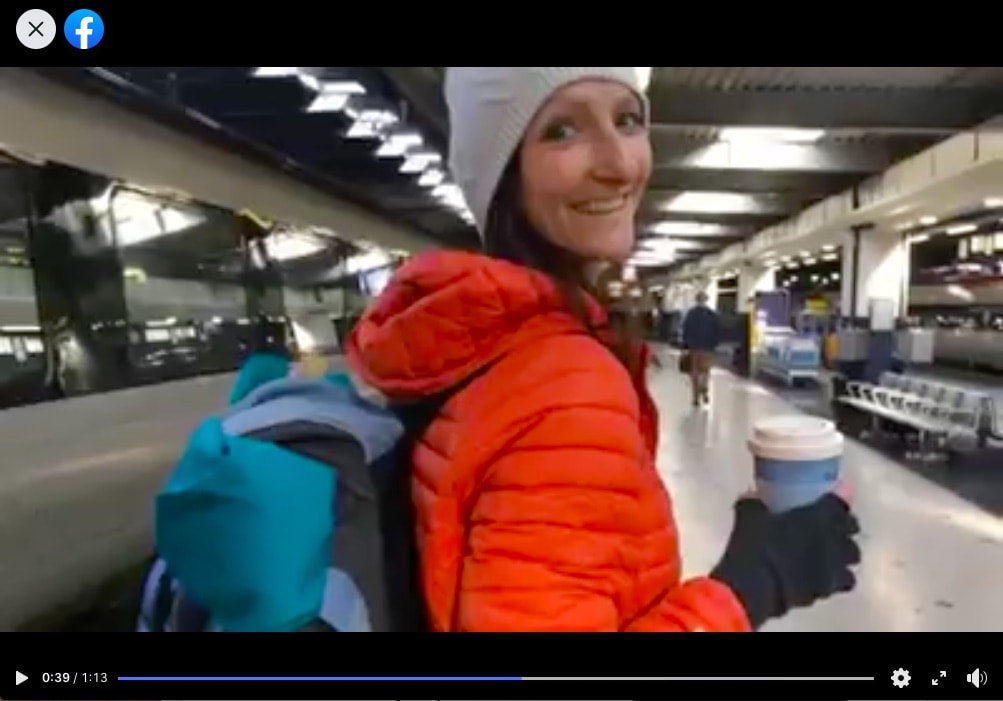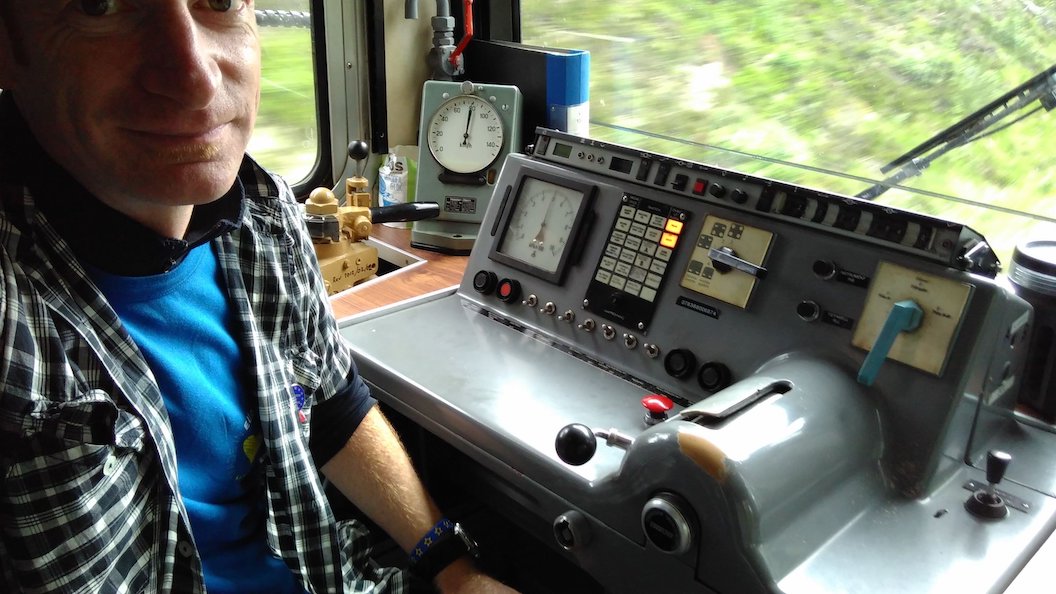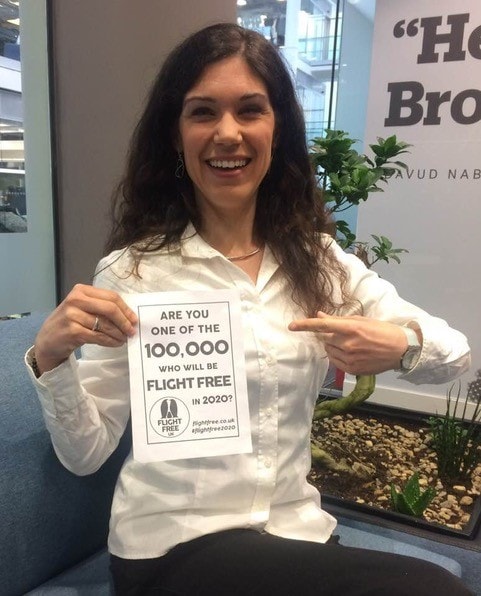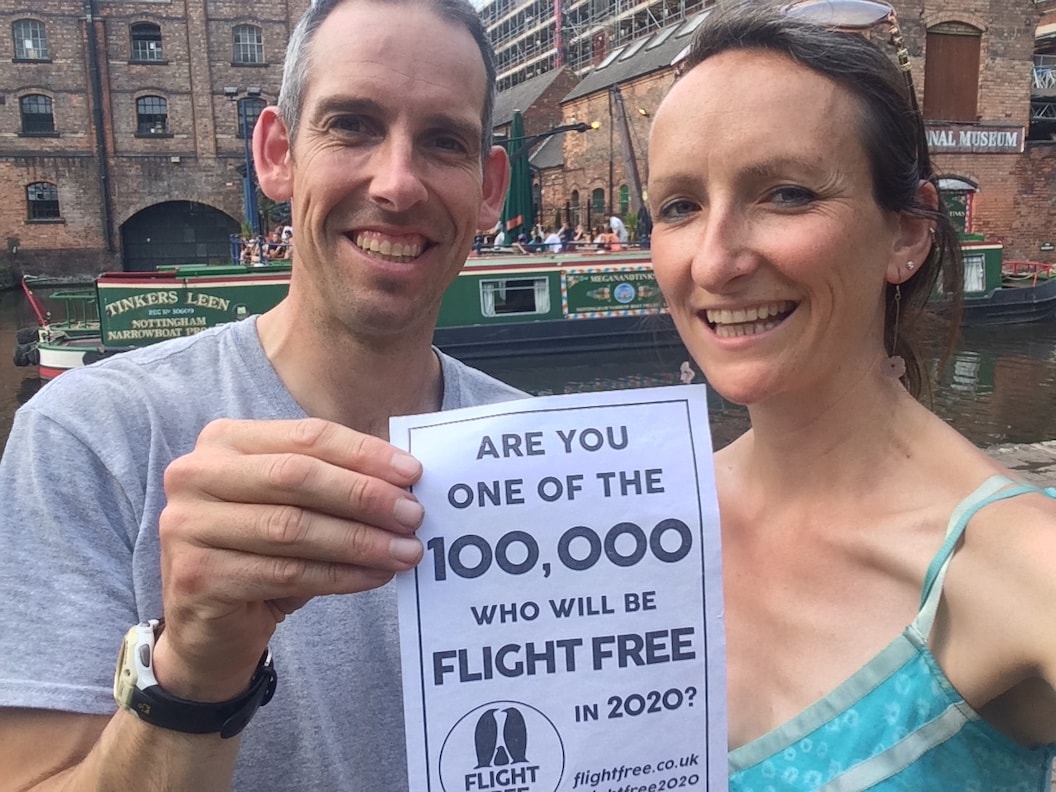
This is my confession.
I have lived a life of over consumption and excess. My ancestors would despair at my short-sighted recklessness. I am guilty of ecocide. Before including flights, I am personally responsible for over eight tonnes of CO2 emissions every year (the European average). That's eight times more than where we need to be.
I've been resisting signing the Flight Free pledge for months. I rarely fly, though in the past I have taken twenty four return flights, mostly while understanding the serious impacts of flying. I also know that my work will require me to fly once or twice in 2020. But in July 2019, I listened to The Good Ancestor, a beautiful but challenging poem by Daverick Leggett, where future generations have been given a brief opportunity to be heard. The poem changed me and it strengthened my resolve.
I see climate issues as ethical issues. In my early years at primary school I remember being presented with an ethical dilemma: "A parent steals food from a local baker to feed their hungry child – is this right or wrong?" The answer that we were given was: "stealing is always wrong". But what if multinational companies hoard all of the world's food for their own short term financial profit leaving millions of people to starve? Well, in our current world this is perfectly okay, as long as they can afford to purchase the food at current market prices.
"Multinational companies hoard all of the world's food for their own short term financial profit leaving millions of people to starve."
By 2008, I was a research associate and part-time PhD student studying the effects of climate change on coral reefs. There were increasing opportunities, expectations and then pressures to fly regularly… The Caribbean, USA, Indonesia, Philippines, Australia. My supervisor flew to the Bahamas for a day. Initially I told myself that it was okay to fly because I was helping to solve the world's problems. But the science was already unequivocal and didn't need me adding fluff at the edges. When the whole research group suddenly relocated to a university in Australia I struggled with the idea of commuting several times a year back home to the UK.
"The science was already unequivocal and didn't need me adding fluff at the edges."
At exactly that time I attended a talk by Sir John Beddington. He outlined a "perfect storm" of food, water and energy shortages that would plague our country as early as the 2030s. There was nothing new in the presentation, but the facts were all brought together, put in a UK context and, crucially, were being delivered to us by the government's chief science adviser.
Sitting there, my first thought was: "Why doesn't he tell the government?!" Then: "He is the government's chief science adviser, why is this not headlining every day on national news?" Then I came to the sad realisation that he was not being heard. He had resorted to personally delivering the talk to as many people as he could.
I quit science. I left my job, PhD studies and career. I joined the Green Party, stood in local elections, helped run a local Transition Network group and churned out newsletters. Things continued to get worse. I tried to change myself. I secured an allotment and bought a greenhouse at home. I drove my wife crazy with talk of giving everything up and living in a yurt. None of this fitted well with an all-consuming job and the pace of modern life.
"I quit science. I left my job, PhD studies and career. I joined the Green Party, stood in local elections."
Right now, our best hope is that a citizen's assembly comes to the only sane conclusion and instructs the government to ground the vast majority of flights immediately. I'm aware that there are extremists in the world who will defend the "right to fly" and the "right to unsustainable growth". If, as a species, we're happy with Russian Roulette, we may instead opt for a frequent flier levy, appropriate levels of tax on aviation fuel and compulsory offsetting.
I'm just like anyone else. I love to travel and I would like to spend my holidays snorkelling in the Maldives, photographing penguins in Antarctica or climbing the arid slopes of Mount Olympus on Mars.

We all have a point at which we awaken to human folly and realise that the existence we are living is about to have disastrous consequences. Whether we know it yet or not, every passing day brings each of us closer to rebelling against our current consumeristic existence and spending our valuable holiday time on the tarmac in the middle of a road, motorway or runway, begging our governments for a future. Some of our fellow citizens will call us hippies and shout "get a job". To be fair, I used to think that Greenpeace were all hippies and that they should get real jobs (and I worked next door to them).
We have to act fast and at scale. Governments need to realise that we are about to re-enact the sinking of the Titanic, but on a planetary scale. We have to rebel for life, we have to go all in and personally face the short term consequences, because otherwise the longer term consequences will be catastrophic.




